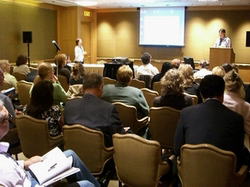As health professionals who are working in family, school, community or medical settings, we sometimes feel like; "The conversation is one-sided and I am not sure if s/he understands what I am saying," "The patient dodges my question and our conversation doesn't go to the proper direction," "I feel rejected when I try to convince him/her to have healthy lifestyle," "Whenever I try to empower individual/ a group of people, failed," "The health campaign doesn't work even though we spend so much money for it," and so on. I am specialized in health sociology now, but I am originally from communication field. I got Bachelor's and Master's degrees in the USA. One of the professors over there said "people communicate in order to fulfill one's desire to get what one wants." Based on this idea, many behavior change models based on psychology and behavior science are developed in order to change the others' behaviors into what you wants them to behave. In health and medical settings, to fulfilled the desire of respecting feelings of patients/citizens but making the conversation/the health campaign forward to the proper direction (for us) at the same time, we have to think "which variables to focus on, how to emphasize these variables in the proper direction, and how these variables work together to produce the outcome that we wish, " instead of repeatedly trying our not-working guess work. If you know "how two or more variables work together to produce the outcome of making the conversation/health campaign to the direction of being accepted the recommended healthy behaviors" based on theories, and use theories to guide the development of your (persuasive) message, you can save time because you cut the guesswork. But to understand theories and translate how to use them in your everyday work may seem complex and too much to do in your busy schedule. Thus, we provide to health and medical professionals efficient and effective health communication trainings. We won't focus on theories, but focus on translating them in your everyday work, aiming at the skill-ups in communication at health and medical settings.  ↑ EBINA's chair session of "Issues in Social Marketing: The Power of Communication and Social Capital" at the 19th IUHPE World Conference. [ HOME ]
|
